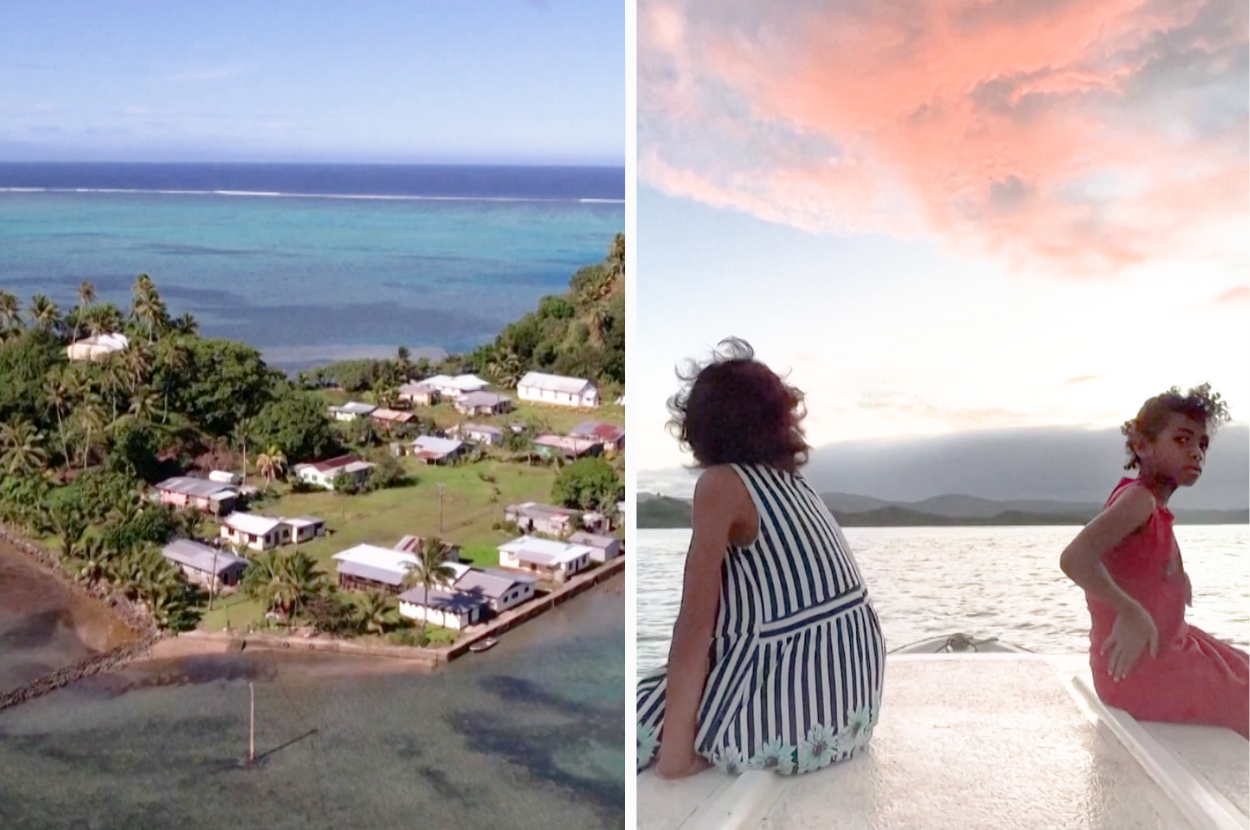People In Fiji Are Being Forced To Leave Their Islands As Rising Sea Levels Swallow Their Lands
“We left our grandparents and parents behind. We left our big houses behind. We left the sea.”

Villager elders on Fiji’s Serua Island always believed they would die on prized land where their chiefs are buried.
But faced with rising sea levels that are swallowing their land, the community has had to make the painful decision to leave behind their land, history and culture.
38-year-old village resident Semisi Madanawa told Reuters that the villagers have been experiencing sea levels that are getting higher than before and reaching the village.
Climate change has brought about flooding, erosion and extreme weather, which are devastating their homes.
Without adequate ways to adapt to the rising sea levels, villagers have been forced to relocating to the main Fiji island in the hopes of securing a future for the next generation.
“Yeah, I’m going to really miss the island. Because I was raised up in this island. I’m going to miss everything that’s surrounding this island. The trees, everything. The atmosphere and the wind. I’m gonna miss it. But we need to do something,” Madanawa said.
“We miss this community so much, you know,” Sailosi Ramatu, a 63-year-old former headman of the Vunidogola village, told Reuters. “Because we learned many things about custom, tradition, the way of life here as we are Fijian. How we lived through the soil, how we live through the land we live, and our culture, we understand as we were taught from our parents.”
“We were very sad when we moved up to the new village site, because we left our grandparents and parents behind. We left our big houses behind. We left the sea,” he added.
Serua Island is one of many coastal villages that is being forced to relocate.
Fiji, an archipelago of hundreds of islands about 2,000 km (1,200 miles) north of New Zealand, became the first Pacific island nation to relocate a community because of rising sea levels in 2014, according to Reuters.
“It takes time for an idea to settle in the hearts of us human beings, so that we can accept the changes that are coming,” Madanawa said.
Sea level rise is an inevitable consequence of climate change and one that will affect thousands, if not millions of people.
When the sea rises, low lying islands and coastal communities are in the most danger, with entire countries becoming submerged.
On Wednesday March 29, the UN passed a resolution calling on the International Court of Justice – or ICJ – to issue a legal opinion on climate change and human rights.
The resolution was spearheaded by the Pacific Island of Vanuatu, after a group of students across the Pacific Islands launched a campaign for an ICJ advisory opinion on climate change.
“Climate change is not an abstract issue but a reality for us [in the Pacific Islands],” Cynthia Houniuhi, the president of the Pacific Islands Students Fighting Climate Change, which started the initiative, told Almost.
The ICJ will now examine the questions asked by the UN with relation to climate change and human rights, with an advisory opinion expected in 2024.
The resolution, which passed by consensus, comes just days after the UN issued a climate report warning that humans far short of limiting global warming to 1.5°C or even 2°C, which is the goal of the Paris Agreement.





